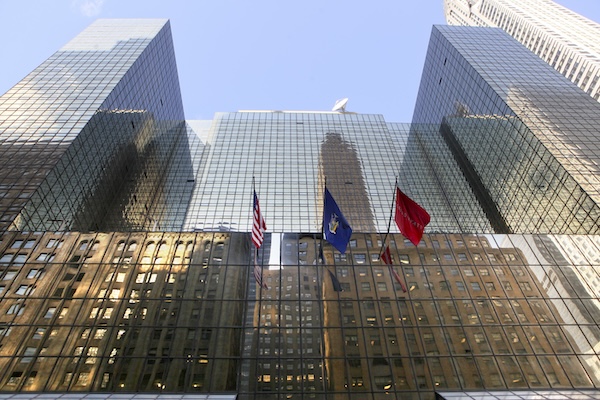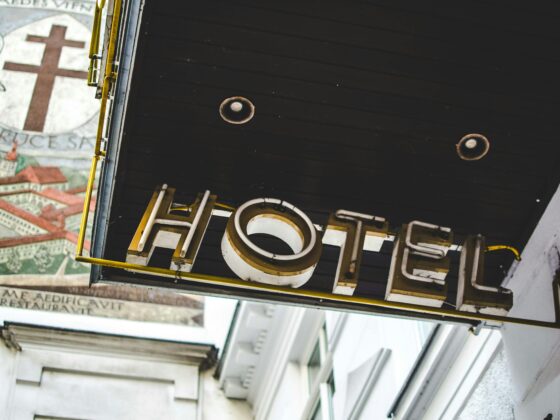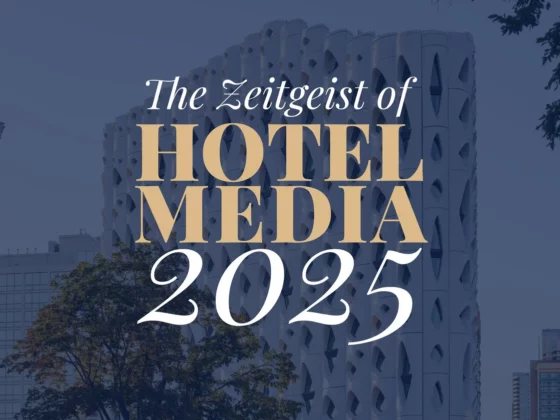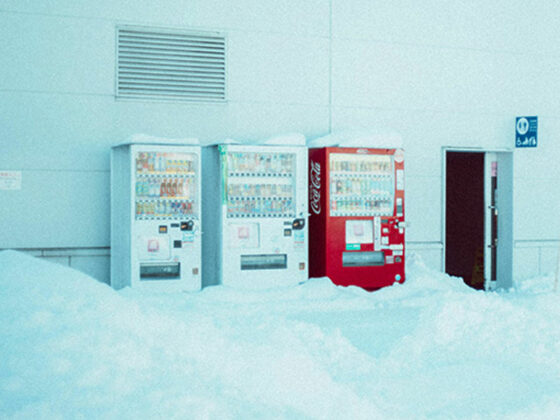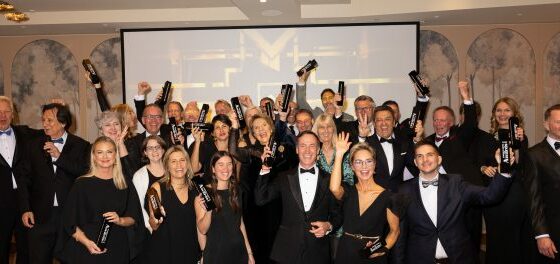NEW YORK — Taylor Swift might be in Kansas City this week rooting on her famous tight-end boyfriend—not that her showing up to GEHA Field brings more fans to the game. It’s her presence elsewhere that moves markets.
Mark Hoplamazian, CEO of Hyatt Hotels Corp., didn’t cop to being a Swiftie during a session alongside Hyatt CFO Joan Bottarini at the Bank of America 2024 Gaming & Lodging Conference, but he did offer that her star alone puts boatloads of revenue in his hotels and the broader economy.
“There is a Taylor Swift effect because it was cheaper to go take a flight to Europe and see Taylor Swift than it was to get tickets sometimes for the concerts in the United States,” he said. It’s true: Several European countries and the European Union have limits on how much ticket resellers can mark up prices for Taylor Swift’s Eras Tour. This Billboard story logically pointed out in May that a fan living in Miami could fly to Paris, stay two nights at a four-star hotel, purchase a Swift ticket and it would still be appreciably cheaper than the cheapest tickets available for her Miami shows.
“I think she contributed a couple hundred basis points to global GDP this year—I’m not kidding,” Hoplamazian said. “She had a much bigger impact on Hyatt than the Olympics in Paris did.”
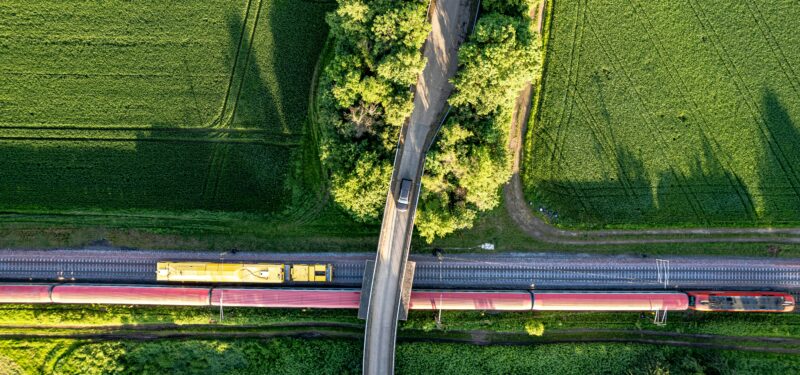
It’s too bad Swift isn’t on tour all the time.
Out of her control are the quotidian swings in travel demand. The farther removed from COVID the more things have become normalized. “Last year was extraordinarily strong for leisure in particular,” Hoplamazian noted, bristling at the notion that leisure on whole is now slacking. To put that in context, he said that the levels Hyatt achieved last year were 20% above pre-pandemic levels, adding that the company is still maintaining that. “We’re not down from last year,” he said. “We’ll have roughly the same leisure demand and leisure revenue base for the company globally this year as we did last year.”
Some leisure travel is just manifesting itself differently. The pandemic resulted in many people traveling and vacationing stateside and closer to home first, then shifting farther outside the borders once given the all-clear. “A lot more Americans—and I mean a lot more—traveled to Europe this year,” Hoplamazian said. “Part of it was rotation—people had done the Caribbean Mexico for the last several years and said, ‘Okay, time to branch out.’”
It’s partly why Hyatt’s performance in Europe was up 12% in the second quarter. “I do think that over time, you’ll see a more natural balancing out of where people are traveling and then you’ll see a resurgence of Caribbean and Mexico next year,” he said.
Mainland China, broadly, has been a drag for Hyatt and its competitors, with Hoplamazian calling it a tale of two different dynamics. On the one hand, inbound travel there has been flat-out weaker, more so than anyone expected, he mentioned. Driven by a host of issues, but none higher than air lift. On the other hand, outbound travel has been very strong, he said, “which has driven really good results for us in Japan, Korea, Vietnam and Thailand.”
Some 50% of Hyatt’s total revenue in China is food and beverage, which were down close to 7% for the first half of the year, Hoplamazian said, against rooms revenue that was up around 4%. “That’s where you might start to see a little bit of a dichotomy, because RevPAR is actually up and our fees are down,” the result of half of Hyatt’s revenue being non-RevPAR driven.
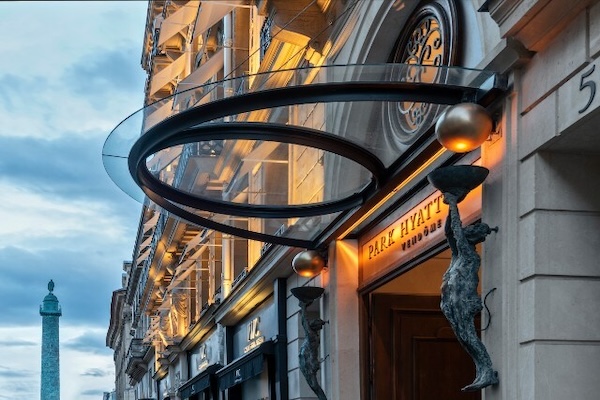
Driving Traffic
One of the major takeaways from lodging C-corp second-quarter earnings calls was that tumult in the broader U.S. economy has had a proportional effect on travel at the lower-edges of the hotel industry, while higher-end travel is still holding up if not booming. Here, Hyatt has a bit of an edge over other hotel companies since its brands have historically skewed to the higher end—Park Hyatt, Grand Hyatt, Hyatt Regency, Andaz, to name several. Hyatt has somewhat joined the pack with recent additions in the more affordable, value-drive space that includes Hyatt Studios, along with its legacy Hyatt Place. Hyatt’s hotels in the luxury segment are up 4%, said Bottarini, while upscale, select-service are up around 2.5%.
“Leisure demand is relatively assured to be vibrant through economic cycles,” Hoplamazian said, adding that the highest correlation to leisure travel demand is the employment rate. As of July 2024, the U.S. unemployment rate stood at 4.3%, up almost a full percentage point since the 3.4% it was in April. The August jobs report is out Friday. “When you look at the category that is coming to our luxury brands—let’s just say the employment levels are extremely high.”
Any torpor in leisure travel is countered by the continued comeback and growth in corporate transient and group business. For the latter segment, Hyatt’s RevPAR is around plus-4% for the remainder of the year, the bulk of which delivered by rate. Next year’s pace, he said, was plus-7%, with the occupancy earning a higher split over rate. “You’re now starting to see some demand fill out of that lag that we’ve had in occupancy,” Hoplamazian said. “Total RevPAR of that base growth in group is super healthy and very well balanced.”
Bottarini called momentum on the business transient side “super encouraging.” In Q2, Hyatt reported 12% revenue growth in the segment and surpassed pre-Covid levels in the U.S. There has also been a flip in the types of business travelers hitting the road. In the wake of COVID, the first segment to come back harder were the SMEs, or small- to middle-sized enterprises. Now, the larger corporations are back “and since a lot of our deals with them have dynamic pricing elements to it, the rate increases are significant,” Hoplamazian said.
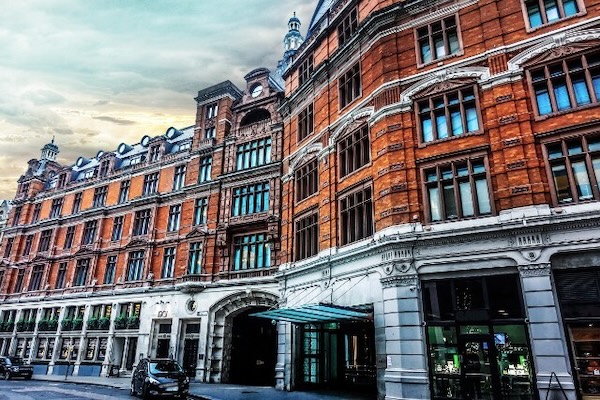
Developing Scenario
A looming interest-rate cut should have a profound and positive effect on future hotel development, which has been stunted in the years following the pandemic. Most of the capital up to now, Hoplamazian pointed out, has come from regional and local banks that require personal guarantees. “There are constraints in terms of what developers can actually do,” he said.
Higher construction costs and interest rates are part of why Hyatt launched Hyatt Studios, billed as an upper-midscale, extended-stay brand, which Hoplamazian said is starting to see more traction in construction starts. Companies like Hyatt, Marriott International and Hilton have leaned into offering brands, especially in the extended-stay segment, that are more geared to travelers seeking value at a lower price point. These include Hilton’s LivSmart Studios and Marriott’s StudioRes, which accompany brands like Echo Suites from Wyndham Hotels & Resorts.
“These are much smaller projects and it’s a little easier for a developer because it doesn’t cost them a massive amount of their own capital,” Hoplamazian said. Around two-thirds of Hyatt’s current pipeline is outside the U.S.
As Hyatt looks to develop new hotels, it’s doing so in an asset-light capacity. Part of its mandate has been to pare down its owned real estate. It recently busted through its commitment to divest $2 billion in owned assets. In August, it completed the sale of the Hyatt Regency Orlando for $1.07 billion.
More deals are on the way. The Andaz London Liverpool Street has reportedly been under contract to be sold since 2022; similarly, Hoplamazian noted that the Hyatt Grand Central New York, which Hyatt and the Pritzker family has owned outright since 1996, when it acquired former President Donald Trump’s stake in the property, is under contract to be sold. The hotel is set to be razed to make way for a new one with a much smaller room count—around 500 keys compared to the now more than 1,300. It’s part of the redevelopment of 175 Park Ave. by RXR Realty and TF Cornerstone that was supposed to get underway in 2023. A Hyatt spokesperson said that Hyatt continues to collaborate with TF Cornerstone and RXR on the project and confirms a purchase and sale agreement remains in place.
In August, Hyatt announced plans to acquire Standard International for a base purchase price of $150 million, with up to additional $185 million over time as it adds more properties to its portfolio. Since 2017, Hyatt has made $3.4 billion worth of investments in asset-light companies at an approximate 9x to 9.5x multiple.
